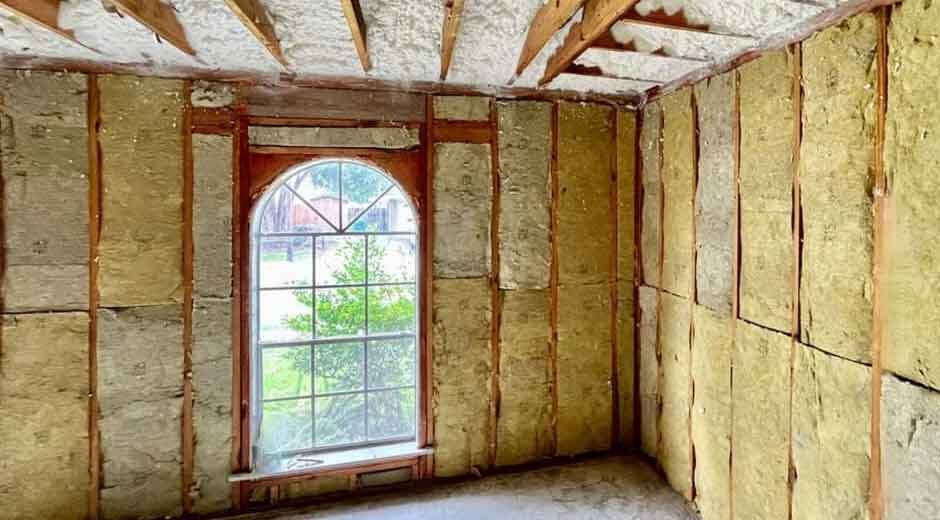There’s a reason Rockwool insulation keeps coming up in construction and renovation projects. It’s not just another option on the market. It stands out for being incredibly efficient, reliable, and versatile. Whether it’s a commercial site or a residential build, Rockwool has earned its reputation for performance.
But what exactly makes it so effective? And why are more professionals choosing it across the board?
What Is Rockwool Insulation?
Rockwool, also known as stone wool or mineral wool, is an insulation material made from volcanic rock, typically basalt. Through a process of melting the rock at extremely high temperatures and spinning it into fibres, the result is a dense yet flexible material that can be formed into batts, boards, or loose fill.
It may look and feel like fibreglass, but the composition and capabilities are very different. Rockwool isn’t synthetic. It comes from real stone, which gives it a level of durability and resistance that other insulation types struggle to match.
The Key Benefits of Rockwool
Professionals in commercial and industrial construction use Rockwool not just because it insulates. It also handles noise, moisture, fire, and pressure. This all-in-one performance is what makes it a favourite across industries.
Here’s what makes it so effective:
Thermal performance
Rockwool insulation Australia offers excellent thermal resistance, helping regulate temperature in both hot and cold conditions. It reduces the need for heating and cooling, which supports long-term energy efficiency.
Sound absorption
Its dense, fibrous structure is brilliant at dampening sound. This makes it ideal for multi-level buildings, schools, hospitals, offices, and anywhere acoustic control matters.
Fire resistance
Rockwool is naturally non-combustible. It can withstand temperatures over 1000°C without melting, burning, or producing toxic smoke. This makes it a strong asset in fire protection strategies.
Water repellence
It doesn’t absorb water like other insulation types. The fibres are treated to be water-repellent, which helps prevent mould growth and material degradation.
Durability
It keeps its shape over time. It doesn’t sag, shrink, or degrade like some other insulation products. This gives it a long working life with minimal maintenance.
Environmental stability
Being made from natural rock, it’s resistant to pests, rot, and chemicals. It doesn’t degrade into particles or release harmful fibres into the air.
That combination of benefits makes Rockwool highly reliable, even in demanding commercial settings. It does more than just meet the minimum code requirements. It often goes well beyond.
Thermal Performance Explained
Thermal resistance, often referred to as R-value, is a key measure in insulation. The higher the R-value, the better the material resists heat transfer.
Rockwool performs well because its fibres trap air, creating a natural barrier against heat flow. This slows down the transfer of warmth during winter and keeps out heat during summer. Unlike some foams or synthetic materials that can degrade over time or lose R-value if moisture is absorbed, Rockwool maintains its insulating power year after year.
This is especially valuable in larger buildings where energy efficiency isn’t just a goal but a cost-saving requirement. Good insulation reduces strain on HVAC systems, helping reduce both operational costs and environmental impact.
Fire Safety Is a Game-Changer
Not all insulation is created equal when it comes to fire safety. In many commercial and industrial builds, passive fire protection is just as critical as structural integrity.
Rockwool is non-combustible. That’s not a label applied casually. It means the material won’t ignite or contribute to the spread of fire. In the event of a fire, it acts as a barrier, helping to slow the spread between compartments or floors. It also doesn’t emit toxic gases, giving people more time to evacuate safely.
This makes it particularly important in high-risk buildings like data centres, hospitals, or warehouses where safety protocols are under strict regulation.
The Acoustic Advantage
Sound insulation is often treated as secondary, but it plays a big role in comfort and functionality. Open-plan offices, multi-residential dwellings, and public-use buildings can all suffer from poor acoustics.
Rockwool has high-density properties that absorb airborne sound, reduce reverberation, and minimise transfer between rooms or floors. This leads to quieter, more comfortable environments, even in busy, high-traffic spaces.
It’s not just about silence. It’s about clarity and comfort, especially in spaces designed for concentration or communication.
Where Rockwool Works Best
Rockwool isn’t one-size-fits-all, but it is incredibly adaptable. It can be used across a wide range of construction applications, including:
- Wall insulation– Internal and external walls benefit from its dual thermal and acoustic properties.
- Roof and ceiling systems– Keeps internal spaces cooler or warmer depending on the season, and adds sound protection in upper levels.
- Floor insulation– Especially valuable in multi-storey buildings for acoustic separation.
- HVAC and pipe lagging– Fire-resistant and water-repellent, it supports thermal stability in mechanical systems.
- Industrial settings– Where exposure to fire, moisture, or mechanical wear is high, Rockwool holds up exceptionally well.
Its ability to perform across these areas means one material can do the job of many, reducing complexity during installation and over the life of the building.
Why It Keeps Winning Over Builders
Rockwool may cost a little more upfront than some other options, but the value it delivers across performance, lifespan, and compliance makes it a smart long-term investment.
When you can combine thermal insulation, acoustic control, fire resistance, and moisture durability into one material, you reduce risk and future maintenance. In commercial settings, that can translate to real savings and improved building standards.










